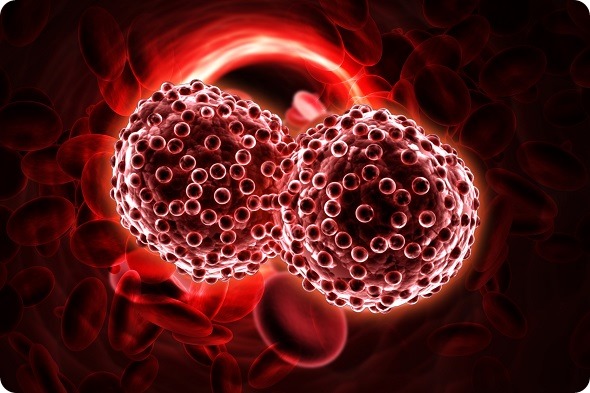UK-based researchers have developed a blood test that can predict whether patients with breast cancer will experience a relapse after receiving treatment, months before tumors are visible using hospital scans.

RAJ CREATIONZS / Shutterstock.com
Based on a concept referred to as “mutation tracking,” the test can detect tumor DNA circulating in the bloodstream and uncover small numbers of residual cancer cells that have resisted therapy.
Researchers at the Institute of Cancer Research (ICR), London and the Royal Marsden NHS foundation Trust were able to track key mutations that cancer acquires as it grows and spreads. By analyzing DNA found in blood samples, the researchers hope they will also be able to determine which mutations are likely to prove fatal so that treatment can then be tailored to individuals accordingly.
Chief executive of the ICR, Paul Workman, says the test:
could help us to stay a step ahead of cancer by monitoring the way it’s changing and picking treatments that exploit the weakness of the particular tumour.”
As reported in the journal Science Translational Medicine, lead author Nicholas turner (ICR) and colleagues took blood and tumor samples from 55 patients with early-stage breast cancer who had been treated with potentially curative chemotherapy and surgery. They developed an individualized ctDNA assay to track mutations in the patients over time and identify tumor DNA in the bloodstream.
They found that women who had tumor DNA circulating in their bloodstream were 12 times more likely to suffer from metastatic relapse than those who tested negative for tumor DNA. Furthermore, the relapse was detected a median of 7.9 months before any visible signs of relapse emerged.
Since the mutations the researchers were looking for were common to many cancer sub-types, the team also found the test could be applied to all types of breast cancer, paving the way for “liquid biopsies” that could revolutionise how disease is monitored and treated.
Turner said:
We have shown how a simple blood test has the potential to accurately predict which patients will relapse from breast cancer, much earlier than we can currently. We also used blood tests to build a picture of how the cancer was evolving over time, and this information could be invaluable to help doctors select the correct drugs to treat the cancer.”
Turner says that it will be “some years” before the test could potentially become available in hospitals, but that by starting much larger clinical trials next year, the scientists hope to bring the date closer.
“There are still challenges in implementing this technology, but digital PCR is relatively cost-effective and the information that it provides could make a real difference to breast cancer patients,” he concludes.